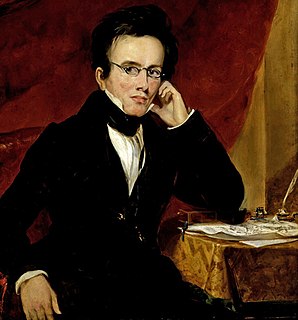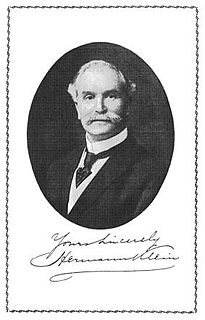
Sir John Goss was an English organist, composer and teacher.

Thomas J. Bowers, also known as "The Colored Mario", was an American concert artist. He studied voice with African-American concert artist Elizabeth Taylor Greenfield and toured with her troupe for a few years before embarking on his own successful solo career. He was the brother of professional singer Sarah Sedgwick Bowers, known as "the Colored Nightingale", and John C. Bowers, a Philadelphia entrepreneur and church organist.
The Musical Times is an academic journal of classical music edited and produced in the United Kingdom and currently the oldest such journal still being published in the country.

Frederic Archer was a British-American composer, conductor and organist, born at Oxford, England. He studied music in London and Leipzig, and held musical positions in England and Scotland until 1880, when he became organist of Plymouth Church in Brooklyn, New York. Archer was later appointed conductor of the Boston, Massachusetts Oratorio Society, director of Carnegie Music Hall in Pittsburgh, Pennsylvania, and in 1899 organist of the Church of the Ascension in Pittsburgh. In 1896 he established the Pittsburgh Symphony Orchestra. He founded, in 1885, The Keynote, which for a time he edited, and also published several books and numerous organ compositions.

Sir John Frederick Bridge was an English organist, composer, teacher and writer.

Alberto Randegger was an Italian-born composer, conductor and singing teacher, best known for promoting opera and new works of British music in England during the Victorian era and for his widely used textbook on singing technique. His compositions included ballets, masses and other church music, operas and numerous other vocal pieces. He also edited several collections of vocal music.

Christian Ignatius Latrobe was an English clergyman of the Moravian Church, as well as an artist, musician and composer. He created a large number of works for, and most famously edited, a Selection of Sacred Music in six volumes between 1806 and 1826, introducing the sacred music of Haydn, Mozart and Pergolesi and other European continental composers who were largely unknown to English audiences.
David Ffrangcon-Davies was a Welsh operatic baritone.

Herman Klein was an English music critic, author and teacher of singing. Klein's famous brothers included Charles and Manuel Klein. His second wife was the writer Kathleen Clarice Louise Cornwell, and one of their children was the writer Denise Robins.

Edmund Thomas Chipp was an English organist and composer. His compositions were principally church organ music and oratorios.

George Robertson Sinclair was an English cathedral organist, who served at Truro and Hereford cathedrals.

The Church of St. John the Evangelist and St. Peter is a Grade II listed Church of England church of Ladywood, Birmingham, England.

Joseph Alfred Novello was an English music publisher. He was the eldest son of Vincent Novello, and the creator of Novello and Company Ltd as a revolutionary force in music publishing.
Emily Edroff-Smith was an English organist, organ teacher and piano teacher. She was one of the few English women concert organists in the late nineteenth century.
The Reverend Frederick Scotson Clark was an English organist and composer. He was founder of the London Organ School and College of Music.
Arthur Hermann Otto was an organist, composer, singer and teacher of music in Adelaide, South Australia. He had a later singing and teaching career in England as Arthur Kingston-Stewart.

Walter Battison Haynes was an English pianist, organist and composer.

Liverpool College of Music was an academy for classical musicians that existed between around 1884 and 1911, originally at 11 Hardman Street. The building was first known as the Meyerbeer Hall and was opened on 31 December 1867. It was also used by Liverpool Spiritualist Church from 4 June 1876 to 1885 before becoming the College. By 2020 the building had become the 'Hard Wok Café'.
John Edmund Cox (1812–1890), also Edmond, was an English cleric and antiquarian, best known as an editor of the works of Thomas Cranmer.
The Village Organist: a series of pieces for church and general use was a sequence of books of organ music published by Novello and Co between 1870 and 1907.













